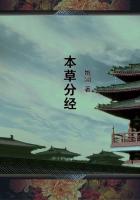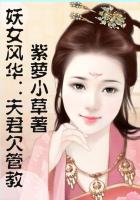She speaks of her moral solitude, which, at that time, was profound and absolute, and she adds: "It would have been mortal to a tender mind and to a girl in the flower of her youth, if it had not been filled with a dream which had taken the importance of a great passion, not in my life, as I had sacrificed my life to duty, but in my thoughts.
I was in continual correspondence with an absent person to whom Itold all my thoughts, all my dreams, who knew all my humble virtues, and who heard all my platonic enthusiasm. This person was excellent in reality, but I attributed to him more than all the perfections possible to human nature. I only saw this man for a few days, and sometimes only for a few hours, in the course of a year. He was as romantic, in his intercourse with me, as I was. Consequently he did not cause me any scruples, either of religion or of conscience.
This man was the stay and consolation of my exile, as regards the world of reality." It was this dream, as intense as any passion, that we must study here. We must make the acquaintance of this excellent and romantic man.
Aurelien de Seze was a young magistrate, a few years older than Aurore.
He was twenty-six years of age and she was twenty-one. He was the great-nephew of the counsel who pleaded for Louis XVI. There was, therefore, in his family a tradition of moral nobility, and the young man had inherited this. He had met Aurore at Bordeaux and again at Cauterets. They had visited the grottoes of Lourdes together.
Aurelien had appreciated the young wife's charm, although she had not attempted to attract his attention, as she was not coquettish.
She appreciated in him--all that was so lacking in Casimir--culture of mind, seriousness of character, discreet manners which people took at first for coldness, and a somewhat dignified elegance.
He was scrupulously honest, a magistrate of the old school, sure of his principles and master of himself. It was, probably, just that which appealed to the young wife, who was a true woman and who had always wished to be dominated. When they met again at Breda, they had an explanation. This was the "violent grief"of which George Sand speaks. She was consoled by a friend, Zoe Leroy, who found a way of calming this stormy soul. She came through this crisis crushed with emotion and fatigue, but calm and joyful.
They had vowed to love each other, but to remain without reproach, and their vow was faithfully kept.
Aurore, therefore, had nothing with which to reproach herself, but with her innate need of being frank, she considered it her duty to write a letter to her husband, informing him of everything.
This was the famous letter of November 8, 1825. Later on, in 1836, when her case for separation from her husband was being heard, a few fragments of it were read by her husband's advocate with the idea of incriminating her. By way of reply to this, George Sand's advocate read the entire letter in all its eloquence and generosity.
It was greeted by bursts of applause from the audience.
All this is very satisfactory. It is exactly the situation of the Princess of Cleves in Madame de Lafayette's novel. The Princess of Cleves acknowledges to her husband the love she cannot help feeling for Monsieur de Nemours, and asks for his help and advice as her natural protector. This fine proceeding is usually admired, although it cost the life of the Prince of Cleves, who died broken-hearted. Personally, I admire it too, although at times Iwonder whether we ought not rather to see in it an unconscious suggestion of perversity. This confession of love to the person who is being, as it were, robbed of that love, is in itself a kind of secret pleasure. By speaking of the love, it becomes more real, we bring it out to light instead of letting it die away in those hidden depths within us, in which so many of the vague sentiments which we have not cared to define, even to ourselves, die away.
Many women have preferred this more silent way, in which they alone have been the sufferers. But such women are not the heroines of novels.
No one has appreciated their sacrifice, and they themselves could scarcely tell all that it has cost them.
Aurelien de Seze had taken upon himself the _role_ of confidant to this soul that he had allotted to himself. He took his _role_very seriously, as was his custom in all things. He became the young wife's director in all matters of conscience. The letters which he wrote to her have been preserved, and we know them by the extracts and the analysis that Monsieur Rocheblave has given us and by his incisive commentaries of them.[4] They are letters of guidance, spiritual letters. The laic confessor endeavours, before all things, to calm the impatience of this soul which is more and more ardent and more and more troubled every day. He battles with her about her mania of philosophizing, her wish to sift everything and to get to the bottom of everything. Strong in his own calmness, he kept repeating to her in a hundred different ways the words:
"Be calm!" The advice was good; the only difficulty was the following of the advice.
[4] "George Sand avant George Sand," by S. Rocheblave (_Revue de Paris_, December 15, 1894).
Gradually the professor lost his hold on his pupil, for it seems as though Aurore were the first to tire. Aurelien finally began to doubt the efficacy of his preaching. The usual fate of sentiments outside the common order of things is that they last the length of time that a crisis of enthusiasm lasts. The best thing that can happen then is that their nature should not change, that they should not deteriorate, as is so often the case. When they remain intact to the end, they leave behind them, in the soul, a trail of light, a trail of cold, pure light.
The decline of this platonic _liaison_ with Aurelien de Seze dates from 1828. Some grave events were taking place at Nohant about this time. For the last few years Casimir had fallen into the vices of certain country squires, or so-called gentlemen farmers.















